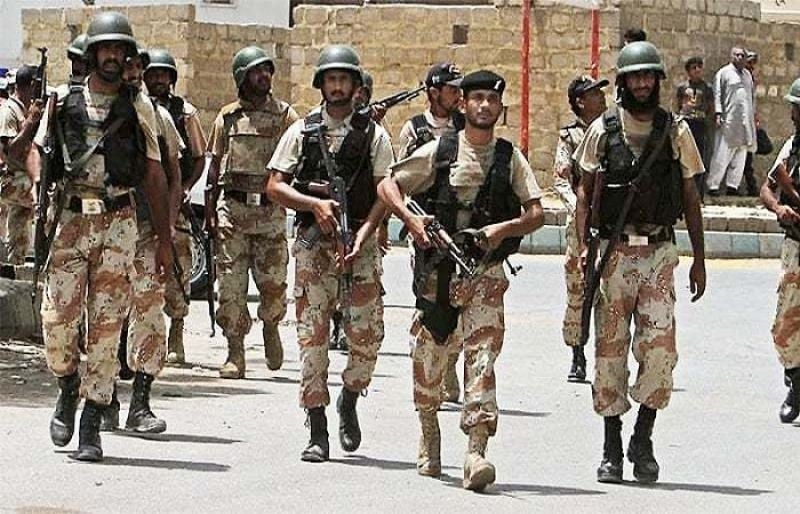
The amendment in ‘Sindh Criminal Prosecution Service Bill,’ is an attempt by the PPP to play tough against the centre’s encroachment on provincial governance

Pakistan People’s Party (PPP) recently amended the ‘Sindh Criminal Prosecution Service Bill’ amid uproar from opposition parties, especially the Muttahida Qaumi Movement (MQM) in the Sindh Assembly. The amendment equips the provincial government with the power to drop charges against any accused being tried in the court of law, including the special courts, at any given point in the trial.
However, experts say that the amended sections were already part of the Code of Criminal Procedure (CRPC and believe that in the current tug-of-war between the Sindh government and the centre, the PPP-led provincial government flexed its muscle to show off that it can pass a law by the force of numbers.
"Section 494 clearly gives power to the attorney general to withdraw any case at any given time during the trial with the consent of the court," says Shahab Usto, a senior independent lawyer.
But the hasty manner in which the PPP proceeded with the amendment goes on to show that the party did not want to discuss the finer points of the amendment with the opposition in the parliament and was eager to get on with it by the force of numbers.
Opposition leaders say as per the code of conduct, copies of the proposed amendment are first given as ‘introduction’ to the members and then after a few days it is tabled for consideration which is when lengthy debates and discussions take place.
However, the members of the parliament were hardly given 15 minutes to contemplate over the amendment before it was eventually approved, says one opposition member.
"This is not the first time the PPP has used the floor of the house to attain some short-term political objective," says Jami Chandio, a Sindh-based writer and activist. "In a democracy, the parliament is the place where you debate and discuss laws that are meant to be well thought out with a vision; the floor is not for political point scoring."
The PPP claim that the amendment will further strengthen the judiciary. Notwithstanding the fact that many interpret the move to be a mere "political gimmick" to show the centre that the PPP controls the provincial assembly, the opposition leader believes the move was to reiterate the fact that the politicians can play around with the law at will.
"In the garb of strengthening the prosecution system, the PPP-led Sindh government has actually strengthened the prosecutor general, who is basically a political appointee," says Khawaja Izhar-ul-Hasan, the MQM-elected leader of the opposition in Sindh Assembly. "What the PPP wanted to show was that it has empowered the prosecutor general instead of the prosecution system."
"And it was not passed unanimously, as the speaker Sindh Assembly claimed. It was passed by the force of crude numbers," he adds. The law also covers special courts like anti-corruption, narcotic and anti-terrorism.
Last year, the Sindh government transferred six home secretaries at various intervals, raising the ire of those in support of the Karachi operation. A home secretary is a career bureaucrat with the knowledge of how a government establishment works and can often see off political pressures. The PPP’s frequent transfers were seen by many as resistance to the federal government-led paramilitary Rangers’ operation.
Independent lawyers and rights activists also question the PPP’s use of the floor to restate its power, especially, when it is evident that the Sindh government is doing the best it can to save Dr Asim Hussain, a close-aide of the PPP co-chairman Asif Ali Zardari, held by Rangers for financing and abetting terrorism.
"The state has every right to decide the framework of prosecution," says senior lawyer and historian Rochi Ram, "but it has to be done in a principled way. What the PPP has done is not in consonance with the values of justice."
Ram says that such policies only indicate that the PPP is actually behind the corrupt practices, as alleged. "Legally, one cannot question the right of the Sindh government to amend certain laws of prosecution; they are the lawmakers. However, there is an ethical dimension to it, which also needs to be taken care of."
But some observers see the move as an extension of an age-old debate that keeps haunting Sindh whenever the PPP government is not at the centre and is at the helm of a provincial government.
It’s a classic tussle between the federal government and Sindh. The tension revolves around the question as to how much the federation can exert its power over the province without encroaching upon the rights of the provincial government.
Since the Karachi operation began in September 2013, the federal government has been steadily making its presence felt on the day-to-day governance of the province through the law enforcement agencies like Federal Investigation Agency (FIA) and the paramilitary Rangers.
As in a recent press conference in Naushahro Feroze, the leader of the opposition in the National Assembly, Syed Khursheed Shah, unequivocally accused the Federal Interior Minister Chaudhary Nisar of meddling in the affairs of Sindh, asking Prime Minister Nawaz Sharif to remove him. Such statements only highlight how unhappy the Sindh government is about the ongoing operation in the city.
The amendment in ‘Sindh Criminal Prosecution Service Bill,’ was by any standard an attempt by the PPP to play tough against what it sees as a constant encroachment by the centre in provincial governance. Coming out as lawmakers, the PPP leadership once again reiterated its displeasure over the state of affair. Loud and clear.